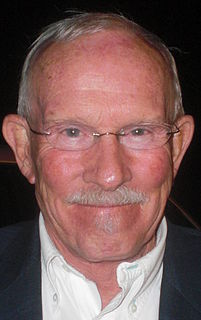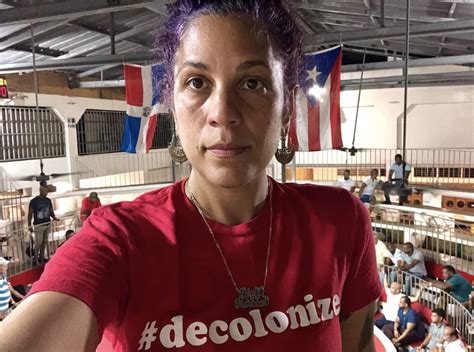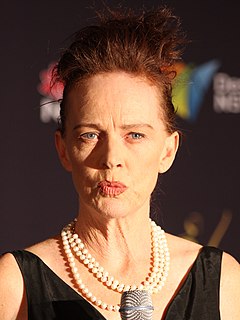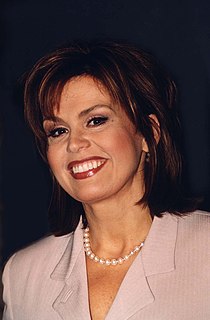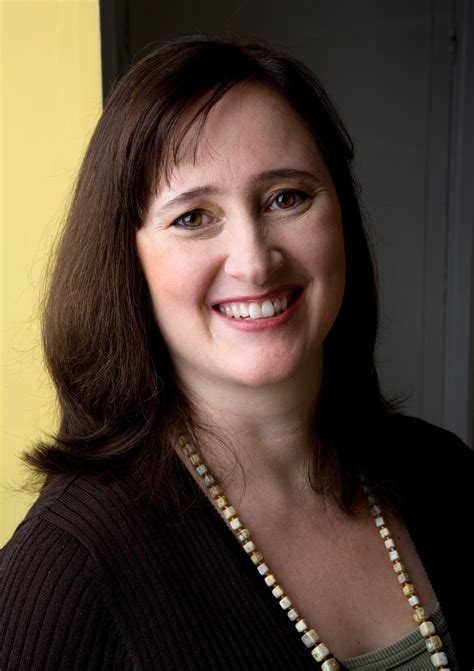A Quote by Per Petterson
When my mother talked about her brother, there was this light in her eyes. I thought, 'This is the basis of a novel.'
Related Quotes
Little Lotte thought of everything and nothing. Her hair was as golden as the sun's rays, and her soul as clear and blue as her eyes. She wheedled her mother, was kind to her doll, took great care of her frock and her red shoes and her fiddle, but loved most of all, when she went to sleep, to hear the Angel of Music.
I talked to my mother about it a lot. I asked her what it was like to grow up in New York and Harlem in the 1920s and 1930s, and I asked her about a woman leaving her husband. I asked her about how she would feel about that woman, and my mother grew up in the Church Of God In Christ, and she told me that the woman might be isolated because the other women thought she might go and come after their husbands. That's how they thought then.
His eyes shone when he looked at her, green as spring grass. He has always had green eyes, said the voice in her head. People often marvel at how much alike you are, he and your mother and yourself. His name is Jonathan and he is your brother; he has always protected you. Somewhere in the back of Clary’s mind she saw black eyes and whip marks, but she didn’t know why. He’s your brother. He’s your brother, and he’s always taken care of you.
His love for my mother wasn't about looking back and loving something that would never change. It was about loving my mother for everything -- for her brokenness and her fleeing, for her being there right then in that moment before the sun rose and the hospital staff came in. It was about touching that hair with the side of his fingertip, and knowing yet plumbing fearlessly the depths of her ocean eyes.
I always knew about as a kid, knew that that particular injury at [my grandfather's] finger had been caused in that disaster that killed his brother-in-law, my grandmother's brother. And he never talked about his own brother's death to me. My mother told me about that and told me about the impact on her family. And that's part of what you hear in the first verse of "Miner's Prayer."
She was beautiful, but not like those girls in the magazines. She was beautiful, for the way she thought. She was beautiful, for the sparkle in her eyes when she talked about something she loved. She was beautiful, for her ability to make other people smile, even if she was sad. No, she wasn't beautiful for something as temporary as her looks. She was beautiful, deep down to her soul. She is beautiful.
But her name was Esmé. She was a girl with long, long, red, red hair. Her mother braided it. The flower shop boy stood behind her and held it in his hand. Her mother cut it off and hung it from a chandelier. She was Queen. Mazishta. Her hair was black and her handmaidens dressed it with pearls and silver pins. Her flesh was golden like the desert. Her flesh was pale like cream. Her eyes were blue. Brown.
If the next car passed is blue, Violet will be okay, she thought. If it's red, A will do something horrible to her. She heard a growl of an engine and shut her eyes, afraid to see what the future might hold. She'd never cared so much about anything in her life. Just as the car was passing, she opened her eyes and saw a Mercedes hood ornament. She let out a long sigh, tears coming to her eyes once more. The car was blue.
Alex gazed at her. Her mouth was slightly open; she ran her fingernail against her lower teeth as she thought. She'd knotted her hair at the nape of her neck again, and a strand had slipped loose onto her shoulder, gleaming in the lantern light. Suddenly all of his objections seemed meaningless. Don't, he thought. You'll regret it. He didn't care anymore. Slowly, unable to stop himself, he reached out and cupped his hand around her foot.



